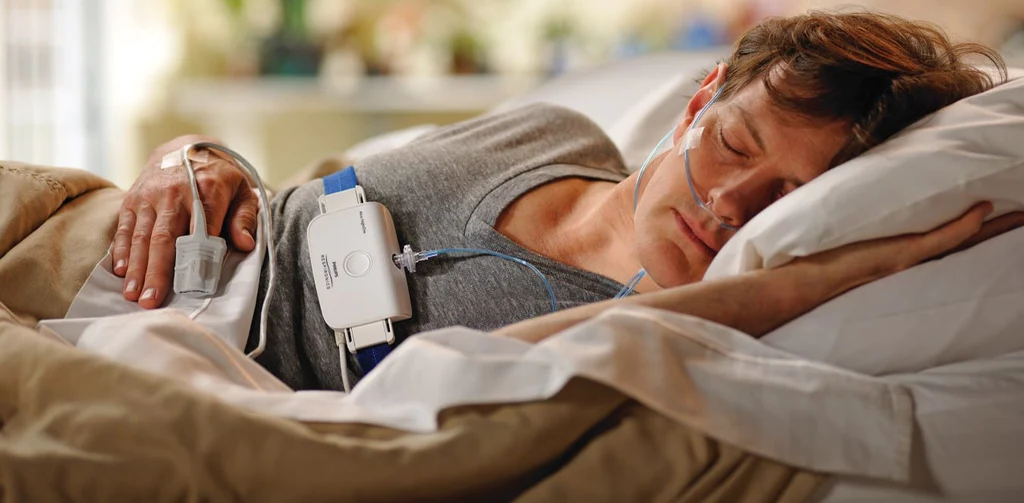
In the United States, 24 million people suffer from obstructive sleep apnea (OSA) and do not know it. With such a high number of undiagnosed cases, more people are turning to simple solutions such as an at-home OSA test. But is it the right choice for you? Today we will look at the importance of diagnosing your sleep apnea with proper healthcare professionals.
Symptoms of OSA
Developed in 2008, the STOP-Bang questionnaire was intended as a pre-screening tool for the obstructive sleep apnea (OSA) surgical population. However, its popularity grew to include sleep clinics, the general population, and other special populations for those at high risk for sleep apnea.
- Snoring
- Tiredness
- Observed apnea
- High blood pressure
In addition, the Mayo Clinic defines a number of symptoms to watch for with sleep apnea:
- Snoring that disturbs your own sleep or a partner, spouse, or roommate
- Waking up from sleep choking or gasping for air
- Pausing in sleep your breaths (it may look like you are holding your breath)
- Increasing daytime sleepiness that occurs at work, at home, or in your car.
What do at-home tests measure?
According to the Sleep Foundation, common metrics measured during an at-home test include:
- Respiratory activity, breathing patterns, and chest motion
- Heart rate and blood oxygen level
- Actigraphy, or nocturnal movement and motor activity
- Sleep position and position changes
- Snoring events and intensity
One important note is the at-home tests do not test sleep quality. There are downfalls to convenience with an at-home test. Without a professional doctor observing your sleep, you are vulnerable to errors like sensors falling off or failing. “Clinics can monitor significantly more vitals related to sleep and can identify additional symptoms of sleep disorders.”
Preparing for an at-home test
Talk to your healthcare provider if an at-home test is the best option. Preparing at a sleep clinic differs from an at-home test. Pay attention to the following daily routines:
- Keep taking your medications unless your doctor advises otherwise;
- Avoid drinking alcohol the day of the sleep apnea test.
- Lessen your caffeinated drinks such as tea, soda, and coffee during the afternoon and evening hours; and
- Try not to nap on the day of the test.
One negative to an at-home test is human error. Avoid using hair gel, body lotion, makeup, and similar products that might make it harder for test sensors to stay in place.
Although there is a lot of work ahead of researchers, trends in healthcare are finding an increase in obesity which increases the chances of sleep apnea diagnosis. If you have any questions or concerns regarding obstructive sleep apnea or any other sleep-related questions, feel free to contact The Alaska Sleep Clinic for further information and be on your way to getting the nightly rest you need.







